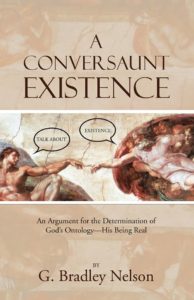Fortunately, even though the original blog site was obliterated, I had saved the first three parts of the newest article I was in the process of publishing. So I will be making them available here, in their proper order, before I publish the latest installment and finish with a synopsis.
This title, “The Universe Speaks,” may have people saying, “Huh?” That is intentional. Looking critically at the universe can provide man with, it can ‘tell’ us, the answers to some of life’s big questions. There are two major world views that come to radically different conclusions about the story of the universe. The theist’s say the universe was created by God. Natural science, humanism and secularist’s say the universe began with a bang, a Big Bang. Actually, the latest versions claim there are multiple Big Bangs.
Steven Hawking was a spokesperson for the theoretical physicists that defended the Big Bang position. Someone commented on a statement Mr. Hawking supposedly made about how natural physicists and secular humanists were “closing in” on the understanding of what happened at the moment of the Big Bang. The author of the article alluded to the idea that they now know, to within a few milliseconds after the Big Bang, what had occurred.
Now that would be Big news if true. However, there doesn’t seem to be any way to go about getting any real confirmation about that claim. Books have been written and analyses have been made defending the Big Bang position. Ultimately, all ‘they’ have is a theory. One that has undergone significant changes in the past. The changes continue to this day and yet these theories get touted as being true. Not so coincidentally, this unproven, always changing Big Bang theory lends its support to the theory of Evolution.
No one was there to observe this thing called a Big Bang, although ‘they’ claim there is evidence all around us to support their theory. One thing that must be remembered when discussions turn to talk of evidence is that evidence can be interpreted in different ways. Another problem with incomplete evidence is that the conclusions derived from them are also incomplete and not reliable.
Because theoretical physicists claim to be scientific, the scientific method should be employed in their attempts to discover the beginnings of the universe. The scientific method begins with an hypothesis and through experimentation makes attempts to disprove the hypothesis in question. Any elements that remain after the attempts to disprove them will become a part of the theory. None of this is remotely possible for investigations of big bangs, it is all just manufactured and is why it gets called theoretical. Therefore, whatever an investigation into the origins of the universe is called it should not be thought of as hard science.
Now in all fairness the theistic position that the universe was created should be investigated to ascertain the accuracy of its description of how the universe began. The first five words in the Bible depict the theist’s position. In Genesis 1:1 it states, “In the beginning God created…”1 To assert that this verse is valid one must first establish that God exists. The book, “A Conversaunt Existence,”2 written by yours truly, philosophically  establishes God’s existence to a skeptical world.
establishes God’s existence to a skeptical world.
On the other hand, when yours truly heard about these new claims about understanding the Big Bang being to within milliseconds of that occurrence, a keen sense of skepticism occurred. Research based upon skeptical intuitions and a pursuit of the truth or falseness of the positions the theoretical physicists hold, brought about some startling findings. They are literally eye opening. To be blunt: There was no Big Bang! The Big Bang as touted by its adherents is impossible.
The assertion that there was never a Big Bang does not and cannot stand alone. When someone makes an assertion there needs to be supportive evidence regarding the truth of the assertion. One must provide an argument stating the facts of the position. After the facts are presented a valid argument must be defendable. If one can’t defend their position, they need to go back to the drawing board.
In Part 2 of “The Universe Speaks” the argument for the assertion that, “There was no Big Bang.” will be presented for everyone to examine.
_____________
1 New American Stand Bible, (Thomas Nelson, Nashville, TN.) The English rendition of Genesis 1:1 as
written is a standard translation seen throughout the various versions of the Bible.
2 G. Bradley Nelson, A Conversaunt Existence: An Argument for the Determination of God’s Ontology
– His Being Real, (WestBow Press; A division of Thomas Nelson, Zondervan; 2015, Bloomington, IN.)
NOTE: Thomas Nelson, Zondervan and WestBow Press are now each a division of Harper Collins
Christian Publishing, Nashville, TN